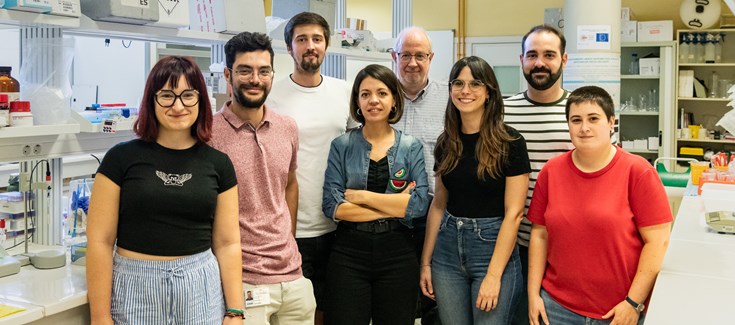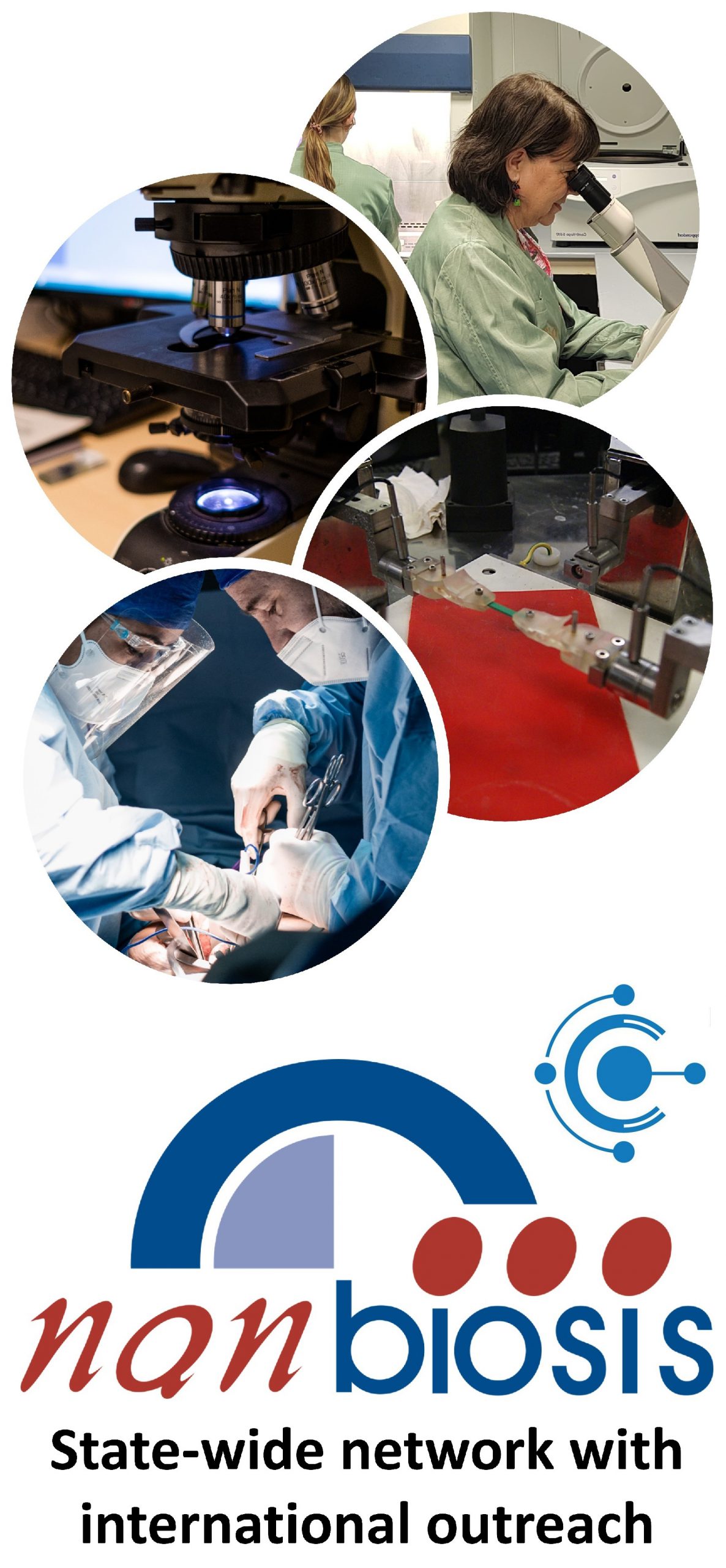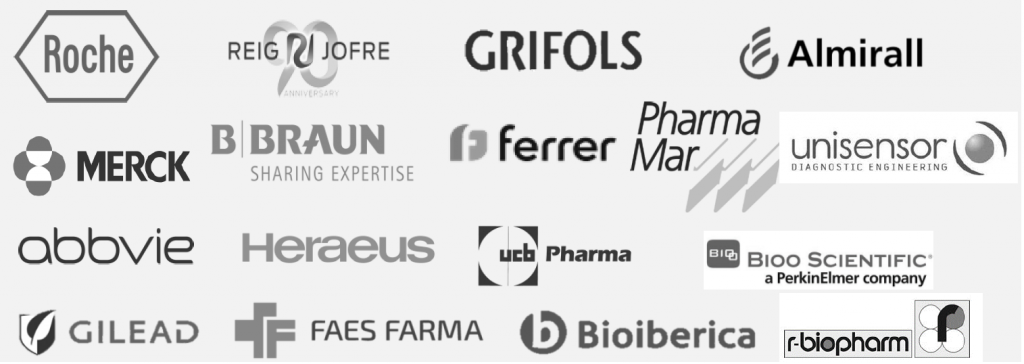
Glucose-powered nanomotors developed by UPV researchers boost drug delivery deep inside solid tumors, showing strong efficacy in advanced preclinical models.
Valencia, November 2025 — A research team from the Universitat Politècnica de València (UPV), part of the Interuniversity Institute for Molecular Recognition and Technological Development (IDM), has developed glucose-driven nanomotors capable of autonomously navigating solid tumors and delivering chemotherapy drugs more effectively. The work, validated in animal models and patient-derived samples, has been published in ACS Nano.
The study involved researchers from IIS La Fe, CIBER-BBN, CIBERONC, INCLIVA, and the Príncipe Felipe Research Center (CIPF). Prof. Ramón Martínez-Mañez, Scientific Director of NANBIOSIS, is the corresponding author.
Nanomotors That Use Tumor Glucose as Fuel
Poor penetration of chemotherapeutic agents into the inner tumor layers remains a major challenge in cancer treatment. As explained by the corresponding author, Ramón Martínez-Máñez — Director of IDM at UPV, CIBER-BBN researcher, and Coordinator of NANBIOSIS Unit 26 — the new Janus nanomotors help overcome this barrier by using glucose in the tumor microenvironment as a natural fuel source.
These nanomotors combine mesoporous silica nanoparticles loaded with doxorubicin and catalytic platinum nanodendrites. Their motion is powered by glucose oxidase (GOx), which converts glucose into hydrogen peroxide. Platinum then decomposes this peroxide into oxygen, enabling propulsion and enhancing drug penetration into tumor tissue.
A Multifunctional Approach to Improve Cancer Therapy
According to Paula Díez (IIS La Fe), the nanomotors not only move through the tumor but also reduce available glucose, depriving cancer cells of energy. The reaction generates oxygen, which helps reduce tumor hypoxia, and reactive oxygen species that amplify the therapeutic effect.
Alba García-Fernández (CIBER-BBN) highlights that the Janus structure enables the nanomotors to travel deeper into tumors and release the drug on demand, triggered by intracellular proteases. This design improves both targeting and delivery efficiency.
Proven Efficacy in Advanced Preclinical Models
The nanomotors showed a strong anticancer effect in cell cultures, tumor spheroids, patient-derived organoids, and a mouse model of solid tumors. In vivo, the treatment significantly reduced tumor size and increased drug concentration in the tumor core.
“These results in patient-derived breast cancer organoids demonstrate the potential of this technology for personalized cancer therapies,” note Iris Garrido and Juan Miguel Cejalvo (INCLIVA).
About NANBIOSIS Unit 26
NANBIOSIS Unit 26, located at the Faculty of Medicine of the University of Valencia and coordinated by Prof. Martínez-Máñez, offers high-field NMR infrastructure (14T) for metabolic profiling of biofluids, tissues, and cell lines. While the Unit did not directly participate in this study, its coordinator leads the research team behind this breakthrough in nanomedicine.
Reference
Andrea Escudero, Francisco J. Hicke, Elena Lucena-Sánchez, Sandra Pradana-López, Juan José Esteve-Moreno, Víctor Sanz-Álvarez, Iris Garrido-Cano, Sandra Torres-Ruiz, Juan Miguel Cejalvo, Alba García-Fernández, Paula Díez, and Ramón Martínez-Máñez. ACS Nano 2025 19 (22), 20932-20955. DOI: 10.1021/acsnano.5c03799
What is NANBIOSIS?
The goal of NANBIOSIS is to provide comprehensive and integrated advanced solutions for companies and research institutions in biomedical applications. All of this is done through a single-entry point, involving the design and production of biomaterials, nanomaterials, and their nanoconjugates. This includes their characterization from physical-chemical, functional, toxicological, and biological perspectives (preclinical validation).
Leading scientists
The main value of NANBIOSIS is our highly qualified and experienced academic scientists, working in public institutions, renowned universities and other research institutes.
Custom solutions
Designed for either scientific collaboration or the private industry, we adapt our services to your needs, filling the gaps and paving the way towards the next breakthrough.

Cutting-Edge facilities
Publicly funded, with the most advanced equipment, offering a wide variety of services from synthesis of nanoparticles and medical devices, including up to preclinical trials.
Standards of quality
Our services have standards of quality required in the pharmaceutical, biotech and medtech sectors, from Good Practices to ISO certifications.
In order to access our Cutting-Edge Biomedical Solutions with priority access, enter our Competitive Call here.
NANBIOSIS has worked with pharmaceutical companies of all sizes in the areas of drug delivery, biomaterials and regenerative medicine. Here are a few of them:









